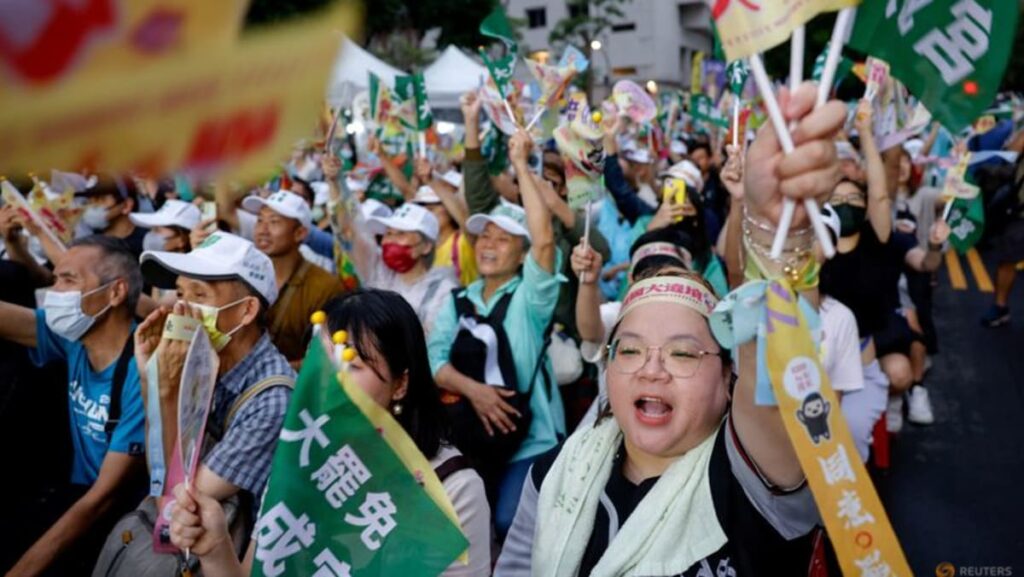For the DPP, flipping just six seats could allow it to break the deadlock in the hung parliament and regain majority control of the legislature, a prospect the KMT has warned could pave the way for “one-party dominance”.
But analysts suggest such a scenario is unlikely.
Frank Lin, a political observer at Taipei University of Marine Technology (TUMT), estimates that only a “single-digit” number of the 24 KMT legislators facing recall votes on Jul 26 are at real risk of losing their seats.
He said his assessment of ground sentiment suggests most legislators targeted by the recall are in “safe” constituencies with solid party support, making it unlikely that voters’ turnout will reach the level needed to unseat them. Though, a few lawmakers could face enough voter mobilisation to put their seats in jeopardy, he added.
“The real test will come in the by-elections … I expect perhaps two or three seats could flip to the ruling party, but that alone wouldn’t give the DPP a simple majority,” he told CNA.
“The DPP’s broader hope is to leverage those gains to sway some TPP lawmakers, which could then finally break the current deadlock in parliament.”
Voter turnout will be crucial in determining the outcome, said James Chen, an assistant professor of diplomacy and international relations at Tamkang University in Taiwan.
“The (number of) core supporters who initiated the recalls is largely fixed,” he told CNA, adding that if turnout is high, it may favour the KMT as it suggests broader voter mobilisation to reject the recalls.
Thousands of people gathered in the rain near the presidential office building on Thursday in support of the recalls.
KMT legislators fighting for their political lives have also taken to the streets to persuade voters to oppose the recall. Their supporters are expected to be out in force on Friday night for a final protest before polling stations open the next day.
GEOPOLITICAL SQUEEZE
Analysts say Taiwan’s “Great Recall” campaign is being driven by a mix of domestic discontent and growing geopolitical uncertainty.
On the regional front, Taiwan has been increasingly caught in the crossfire of great power rivalry.
Tensions have deepened under United States President Donald Trump’s return to the White House as his administration adopts a more inward-looking, transactional approach to foreign policy – one that has left Taipei navigating uneasy ground between a hostile Beijing and an unpredictable Washington.
Trump has yet to personally voice public support for Taiwan since taking office, while his administration has imposed tariffs of up to 32 per cent on Taiwanese goods and pressed Taipei to buy more US weapons, noted Lim Tai Wei, an East Asian affairs observer and professor at Soka University.
“To a certain extent, the ruling DPP is feeling the pressure,” Lim said. “If Washington treats Taiwan transactionally while relations with Beijing remain frozen, Taipei finds itself squeezed from both sides.”
During the “Great Recall” campaign, the KMT has repeatedly argued that Trump is primarily interested in Taiwan for its semiconductor giant, Taiwan Semiconductor Manufacturing Company (TSMC), the world’s largest and most advanced chipmaker.
In March, Trump successfully lobbied for TSMC to commit an additional US$100 billion to its US operations, including building five new “cutting-edge” fabrication plants on American soil.
The deal has fueled criticism, particularly from Taiwan’s opposition, that Taipei is “surrendering” its most valuable asset to Washington in exchange for security commitments – guarantees the US has not formally offered.
Read the full article here
